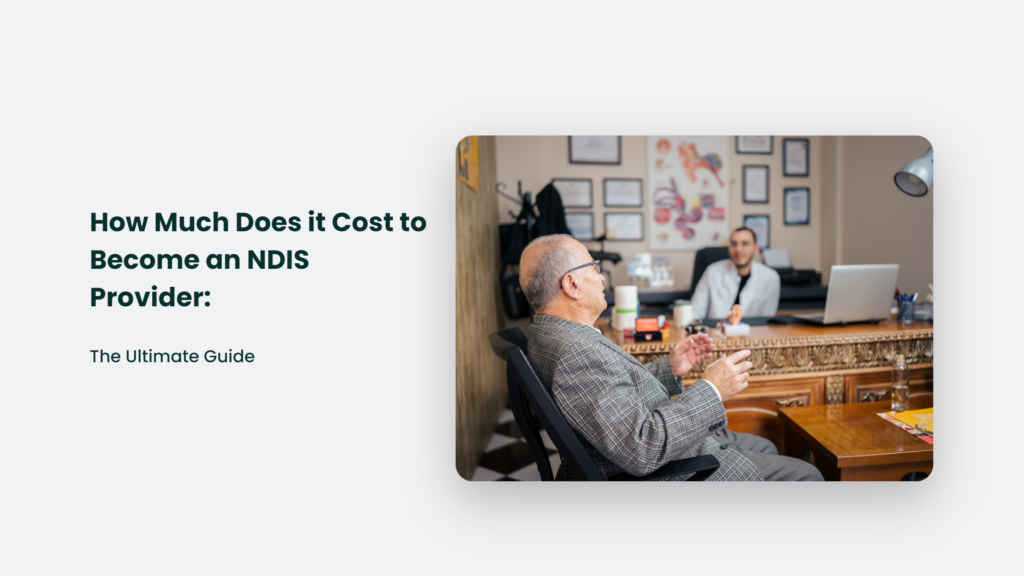Are you considering becoming an NDIS provider but wondering, “How much does it cost to become an NDIS Provider? Well, buckle up because we’re about to dive deep into the world of NDIS provider registration and the expenses you’ll need to consider.

How Much Does It Cost to Become an NDIS Provider
First, let’s talk about the actual costs of becoming an NDIS provider. Registering with the NDIS is free, but there are costs associated with auditing your business, which the applicable NDIS Practice Standards require. These costs will vary depending on the size of your business and the type of services you plan to offer. Here’s a breakdown of the costs you might encounter:
- Verification audit: For providers delivering ‘low risk’ or less complex services, a desktop audit may cost between $900 – $1500.
- Certification audit: Applicable for ‘higher risk’, more complex services and supports, this audit may cost between $3,000 – $5,000.
Keep in mind that these costs are just for the audits. You’ll also need to consider the costs associated with starting the business itself, such as staff recruitment and training, leasing or buying a base to operate your NDIS services and other operational expenses.

The Benefits of Becoming an NDIS Provider
Now that we’ve covered the costs let’s talk about the benefits of becoming an NDIS provider. As a registered provider, you’ll have greater credibility, a larger client base, and direct payments from the NDIS. Plus, you’ll be able to work with NDIA-managed participants, allowing for more business intake in your local area and expansion opportunities.
Navigating the Challenges of NDIS Provider Registration
Becoming an NDIS provider isn’t all sunshine and rainbows. You’ll need to overcome challenges, such as adapting to changes in the sector, ensuring compliance with NDIS and Fair Work regulations, and managing casual employment. But with proper planning and strategic decision-making, you can successfully navigate these challenges and maximise the opportunities ahead.
Frequently Asked Questions:
Is it free to register with the NDIS?
Yes, registering with the NDIS is free. However, there are costs associated with auditing your business, which is required by the applicable NDIS Practice Standards.
What are the costs of NDIS audits?
A verification audit for ‘low risk’ or less complex services may cost between $900 – $1500, while a certification audit for ‘higher risk’, more complex services and supports may cost between $3,000 – $5,000.
What are the benefits of becoming an NDIS provider?
As a registered provider, you’ll have greater credibility, a larger client base, and direct payments from the NDIS. Plus, you’ll be able to work with NDIA-managed participants, allowing for more business intake in your local area and expansion opportunities
The Bottom Line:
In conclusion, becoming an NDIS provider can be a rewarding and lucrative endeavour, but it’s essential to be aware of the costs and challenges involved. By understanding the expenses associated with registration and audits and the benefits and potential obstacles, you’ll be better prepared to decide whether becoming an NDIS provider is the right move for you.




